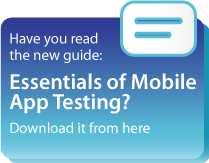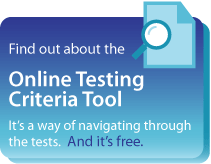AQuA and the Deliverables
Welcome to the App Quality Alliance, a global association focused on helping the industry continually improve and promote mobile app quality, across all platforms.
Please read all about AQuA and the deliverables below and get in touch if you have any questions at all. Thank you.
What is AQuA and who is involved?
What does AQuA deliver?
Quality App Directory
The Testing Criteria
The Baseline Testing Criteria
Accessibility Testing Criteria
Performance Testing Criteria
Online Testing Criteria Tool
The App Quality Alliance (AQuA) is a global association focused on helping the industry continually improve and promote mobile app quality, across all platforms.
It is led by volunteers and industry contributors who work together on projects of mutual interest, thereby minimising the work needing to be done by each one.
Guidelines and documents such as: Cross-platform Best Practice Guidelines, mobile app testing guidelines, platform-specific Baseline Testing Criteria and more recently the Accessibility Testing Criteria.
Online tools to help you follow the progress of apps you're testing against the Testing Criteria
AQuA is also responsible for the Quality App Directory into which developers can place details of apps that have met the AQuA standard.
All of AQuA's work is collaborative, working with it's members and the industry on mutually interesting topics of app quality. It is also open source (published under the Creative Commons 3.0 Attribution License), which means that anyone is free to share or adapt the work that AQuA produces, for any purpose. We simply ask that they give appropriate credit do AQuA when doing so.
Below are some of the deliverables.
An online repository containing details of apps (Android and iOS) that have passed the AQuA Testing Criteria.
The Quality App Directory has its own site, and to find out the 'what, how, where and when', the best place to start is with the FAQs on the site itself.

AQuA is responsible for producing Testing Criteria for different platforms, against which developers can test their apps.
The criteria have been produced based on the collective experience of the AQuA members, together with vast industry input. The idea is that an app that has met the criteria will provide a consistently good user experience without causing trouble to the user or the device.
The Baseline Testing Criteria (for Android, iOS and Java apps), the Accessibility Testing Criteria, and the Network Performance Testing Criteria are below.
These sets of Baseline Testing Criteria (for Android, iOS and Java ME) have been developed to catch the common errors that a developer may miss when testing their app.
The Baseline Testing Criteria comprises of a set of individual tests, to help ensure that there is a consistently good user-experience of app quality on the device.
With the help of the AQuA members, test houses and developers, we identified 4 types of mobile apps:
- A Simple App
- A Framework App
- Content from a Framework App
- A Complex App
As these apps all have different attributes and functionality levels, they need different levels of testing, with not all types of apps needing to be tested against all of the tests in the Criteria.
Information about the test types, app types and 'critical' / 'warning' level tests are in the Criteria.
Take a look at the:
Baseline Testing Criteria for Android Apps
Baseline Testing Criteria for iOS Apps
Baseline Testing Criteria for Java ME Apps
Baseline Testing Criteria for Windows Apps
Launched in July 2015, the Accessibility Testing Criteria is intended to be used to check the accessibility of an application for users with limitations in one or more categories of vision, hearing, speech, dexterity and cognition.
The Accessibility Testing Criteria was a collaborative project, put together by AQuA and its members,with key industry organisations such as the Mobile Manufacturers Forum,
The Accessibility Testing Criteria is available for Android, Windows and IoS.
The App Quality Alliance (AQuA) Network Performance Testing Criteria were created to be used in conjunction with AT&T’s Application Resource Optimizer tool (ARO). Since then, AT&T has significantly enhanced the capabilities of the tool, including the ability to analyse streaming video usage, and simulate the effect of changing network reception conditions on-the-fly.
Because the new tool’s output is different and more sophisticated, we have temporarily withdrawn the Testing Criteria for rewriting, but in the meantime urge all developers and testers to make use of the new Video Optimizer tool (https://developer.att.com/video-optimizer) without waiting for new testing criteria. Don’t be misled by the name change – it still delivers an extraordinary level of detail on data usage and power efficiency for any app, whether handling video or not, and enables you to easily see if your app is using more of your customers’ data allowance or battery power than it needs to. We recommend it.
The tool is available for the AQuA Baseline Testing Criteria for Android, iOS and Windows apps and the Accessibility Testing Criteria for Android and Windows apps.
All your existing and past tests are clearly shown in the system, for you to go back to at any time.



